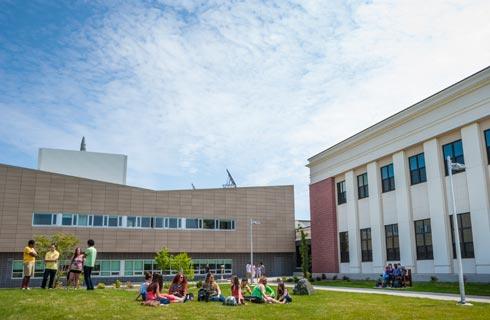- IDP China>
- 课程库>
- 工程与技术>
- 工程学及其相关技术>
- 海事工程与技术>
- Postgraduate Diploma in Applied Science - Marine Environmental Science
应用科学研究生文凭-海洋环境科学
Postgraduate Diploma in Applied Science - Marine Environmental Science

学历文凭
Postgraduate Diploma

专业院系

开学时间

课程时长

课程学费

国际学生入学条件
IDP—雅思考试联合主办方

雅思考试总分
6.5
- 雅思总分:6.5
- 托福网考总分:95
- 托福笔试总分:587
- 其他语言考试:Cambridge Certificate of Proficiency in English (CPE) - Overall score of 176 (with no individual band below 169).Cambridge Certificate in Advanced English (CAE) - Overall score of 176 (with no individual band below 169). Pearson Test of English (PTE) Academic - Overall score of 64 with no communicative skills score below 57
CRICOS代码:
申请截止日期: 请与IDP联系 以获取详细信息。
课程简介
The Postgraduate Diploma in Applied Science (PGDipAppSc) is a two semester programme, which builds on an undergraduate Applied Science degree. It allows people who are currently working to undertake blocks of study - one block for the certificate, a second block to complete the diploma. Alternatively, students may wish to complete the 120 point programme in a continuous run.<br>Nationally and internationally, we face increasing challenges associated with human interaction with the marine environment, from rising sea levels, changing temperatures, increasing storm inundation, decreasing biodiversity and fish stocks, to increasing use of the coastal zone for aquaculture. Projecting and managing these changes requires an interdisciplinary approach where an understanding of the physical and biological systems operating in the marine environment is integrated with the complex human interest in the marine environment from conservation to indigenous interest to government (local, region and national) management approaches.
相关申请
 预科
预科 奖学金
奖学金 实习机会
实习机会 在校学习
在校学习 跨境学习
跨境学习 校园授课-线上开始
校园授课-线上开始 在线/远程学习
在线/远程学习
开学时间&学费
学费信息仅供参考,请与IDP联系以获取详细信息
| 开学时间 | 时长 | 学费 | 地点 |
|---|---|---|---|
| 暂无 | 暂无 | 暂无 | 暂无 |
学校排名

世界排名201
数据源:
泰晤士高等教育世界大学排名
关于奥塔哥大学

成立于1869年的奥塔哥大学是新西兰第一所大学,拥有丰富而杰出的历史。奥塔哥大学在研究和教学方面享誉世界,在QS世界大学排名中位列全球前1%。奥塔哥大学在商业、健康科学和人文科学等领域提供了大量而多样化的学习选项。学生可以从200多门课程中选择。该大学在就业能力、国际化、教学和研究等方面均被QS评为五星。根据高等教育委员会(TEC)的教育表现指标,奥塔哥大学在学生表现和留存率方面也被评为新西兰第一。这强调了奥塔哥为学生提供的教育质量。该机构在新西兰各地都有校区,在达尼丁、惠灵顿、奥克兰、基督城和因弗卡吉尔都有校区。奥塔哥大学的学生群体也是多元化的,达尼丁校区85%以上的学生来自城市以外,全校有3000名国际学生入学。奥塔哥大学的学生享有良好的毕业成果,95%的学生在毕业后继续深造或就业。
本校相关课程
其他相关课程

工学学士-海事(荣誉学位)
 弗林德斯大学
弗林德斯大学泰晤士高等教育世界大学排名:307
学历文凭
Bachelor Degree with Honours
开学日期
课程费用总额


海事政策硕士
 伍伦贡大学
伍伦贡大学泰晤士高等教育世界大学排名:247
学历文凭
Masters Degree (Coursework)
开学日期
课程费用总额


Graduate Certificate of Maritime Engineering (Naval Engineering)
 塔斯马尼亚大学
塔斯马尼亚大学学历文凭
Graduate Certificate
开学日期
课程费用总额


海事工程学硕士(技术管理)
 澳大利亚海事学院
澳大利亚海事学院学历文凭
Masters Degree (Coursework)
开学日期
课程费用总额


海事工程(技术管理)研究生证书
 澳大利亚海事学院
澳大利亚海事学院学历文凭
Graduate Certificate
开学日期
课程费用总额


海事工程(海洋工程)研究生证书
 澳大利亚海事学院
澳大利亚海事学院学历文凭
Graduate Certificate
开学日期
课程费用总额










 新西兰
新西兰





